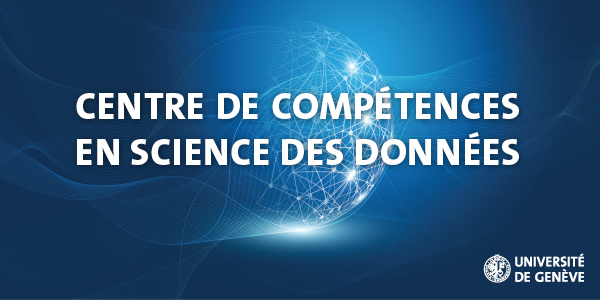CCSD Program

Dear colleagues,
I hope this email finds you and your loved ones well in these special times.
I am pleased to send you today the program of the University of Geneva’s Data Science Competence Center (CCSD) for the coming year.
First of all, I would like to thank all of you! This program comes as a result of the personal contributions of each of you and the time that you did not hesitate to give to the project, whether it was during the interviews that we conducted together or during our April plenary meeting.
Validated by the Rectorate, this program constitutes a solid foundation for launching the Center and allowing us to think together about its future development, so that its services and initiatives stay as close as possible to the needs of our university community and those of the City.
As such, I invite you to read the following, and do not hesitate to come back to me with your opinions, comments and concrete ideas for participating in the projects.
Other messages will follow, specifying more clearly each of the activities planned for the next semester.
I look forward to meeting you in September and I wish you, dear colleagues, a lovely day and a great summer.
Best regards,
Guive Khan-Mohammad, PhD
Operational definition of the term "data science" We interpret the term “data science” as the science of learning from data.
As such, data science is based on several academic disciplines, including data management and engineering, statistics, algorithms, machine learning, programming, optimization, visualization, law and ethics, as well as on many skills, such as elicitation and problem formulation, collaboration and communication.
At the heart of data science is a process of continuous improvement, aimed at solving complex, unstructured and data-rich problems, by applying specific methods, techniques and practices.
Data science thus provides a whole scientific learning process from data to the humanities and social sciences, economics, medicine, environmental sciences, as well as a multitude of other disciplines, and provides decision support, helping to understand and act on complex real world problems.
Vision of the Centre By leveraging our strengths of interdisciplinarity and critical transversal approach, we apply data science to understand complex problems, contributing to consolidate the status of scientific excellence of our university in the era of big data and to develop skills, initiatives and concrete solutions for the public good.
Mission of the Centre The Data Science Competence Center (CCSD) of the University of Geneva's mission is to federate the skills and initiatives of UNIGE in data science, with the aim, through transversality, of promoting the emergence of innovative research and of supporting a critical and informed transformation of scientific culture in the era of big data.
Objectives and 2020-21 projects
Objective 1: Promoting interdisciplinary and critical research in data science
Objective 2: Facilitating the transformation of UNIGE researchers’ scientific practices through the development of data science services
Objective 3: Supporting the development of the transversal training offer in data science at the UNIGE
Objective 4: Improving the visibility and accessibility of UNIGE's expertise in data science
 |
